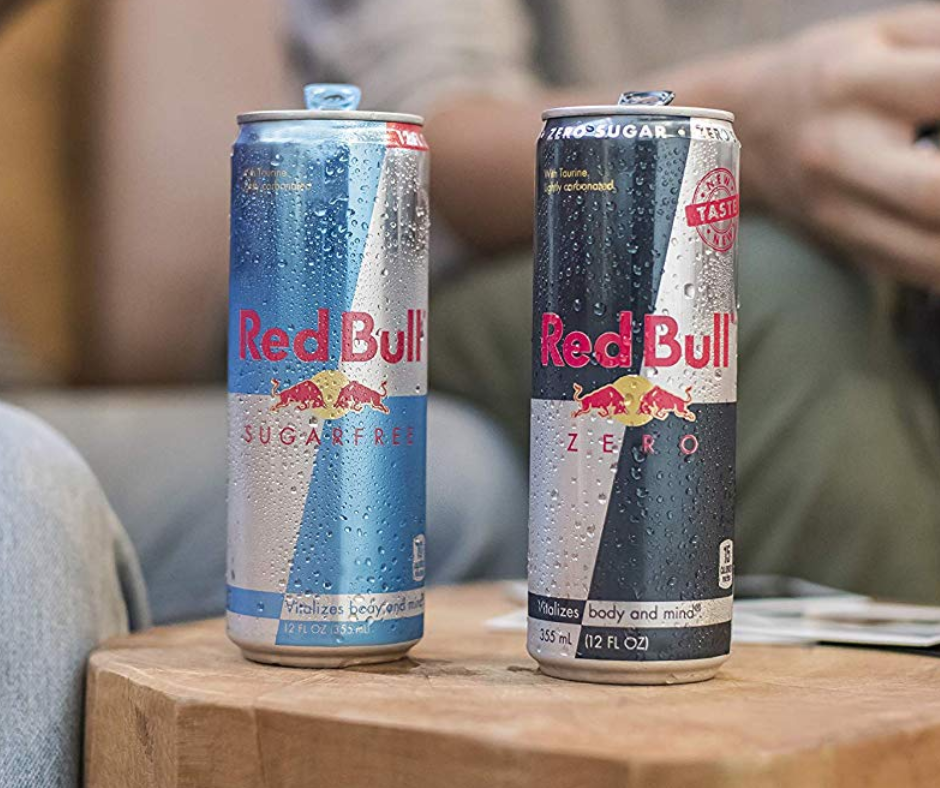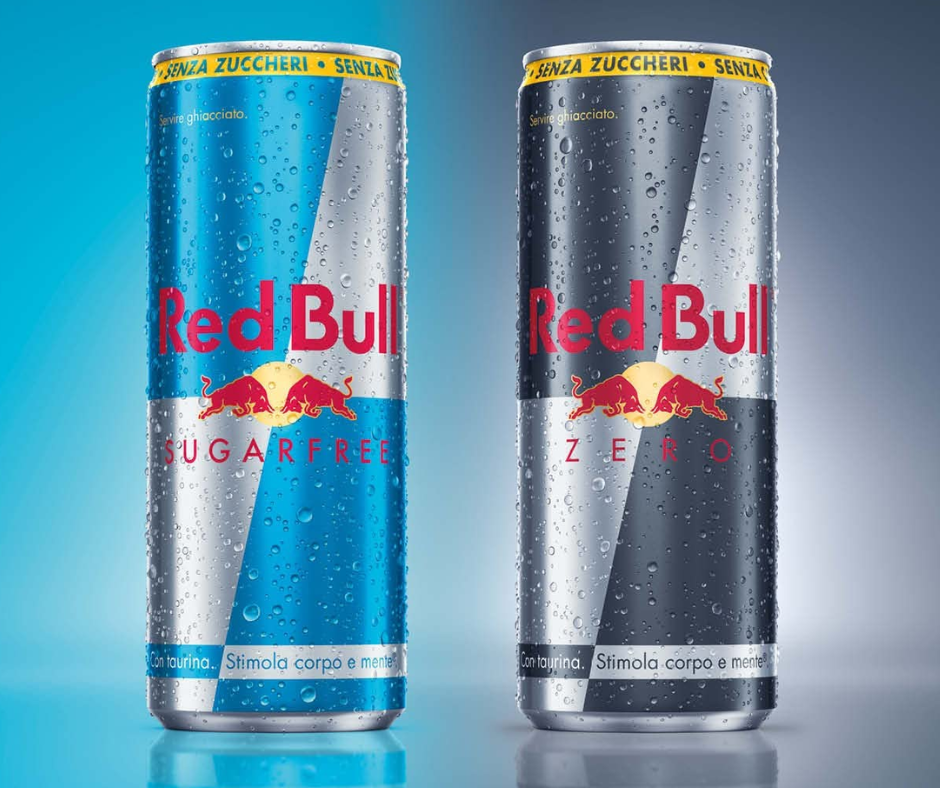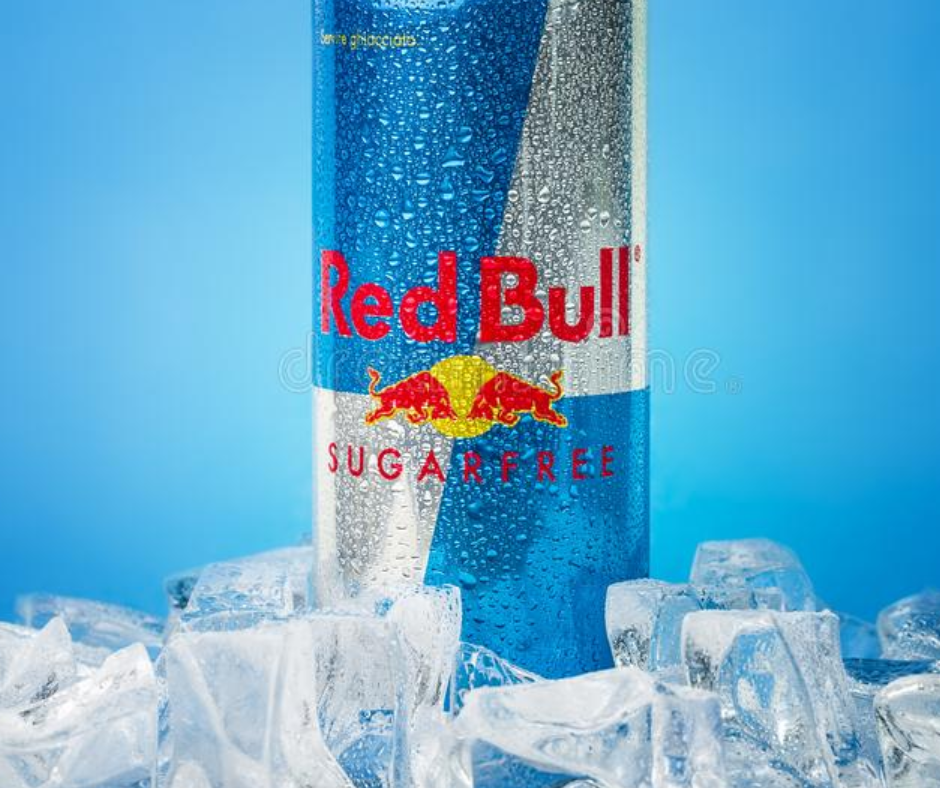Understanding Sugar-free Red Bull Energy Drink
Introduction To Sugar-free Red Bull Energy Drink
Most of us have heard of Red Bull, the popular energy drink that claims to boost energy and increase alertness. But what about its sugar-free version? Is Sugar Free Red Bull Good For You? Sugar-Free Red Bull is a variation of the original energy drink that aims to offer the same benefits without the added sugar.
Unlike regular Red Bull, Sugar-Free Red Bull is designed to provide consumers with an energy boost without the calories and potential health risks associated with consuming excessive sugar. It targets individuals watching their sugar intake or following a low-sugar diet.
Composition And Ingredients Of Sugar-free Red Bull
Sugar-Free Red Bull comprises several key ingredients that contribute to its energizing effects. These include caffeine, taurine, and B vitamins. Caffeine is a stimulant that helps to improve focus and alertness, while taurine is an amino acid that supports brain function and muscle health. The B vitamins help convert food into energy and support overall metabolic function.
In addition to these key ingredients, Sugar-Free Red Bull contains carbonated water, citric acid, sodium citrate, natural and artificial flavors, and several artificial sweeteners such as aspartame and acesulfame potassium. It is important to note that while artificial sweeteners provide a sweet taste without the added sugar, they may have potential health implications, which individuals with specific dietary concerns or sensitivities should consider.
It is worth noting that while Sugar-Free Red Bull may be a better option for those looking to reduce sugar intake, it is still an energy drink and should be consumed in moderation. Excessive consumption of energy drinks, even sugar-free ones, can still negatively affect health, such as increased heart rate, high blood pressure, and disrupted sleep patterns.
In conclusion, Sugar-Free Red Bull is a variation of the popular energy drink that offers the benefits of increased energy and alertness without the added sugar. It is a suitable option for those looking to reduce their sugar intake or follow a low-sugar diet. However, it is important to consume it in moderation and be mindful of the potential health implications associated with energy drink consumption. Consult a healthcare professional or registered dietitian with specific dietary concerns or questions.
Is Sugar Free Red Bull Good for You?
Impact Of Caffeine And Taurine On The Body
Like many other energy drinks, Sugar-Free Red Bull contains caffeine and taurine. These two ingredients are known for their stimulating effects on the body. It is important to understand these ingredients to answer ‘Is Sugar Free Red Bull Good for You?’.
Caffeine stimulates the central nervous system, increasing alertness and reducing fatigue. It can also improve cognitive function and enhance physical performance. However, excessive caffeine consumption can lead to side effects such as increased heart rate, insomnia, and anxiety.
Taurine, an amino acid found naturally in the body, has been shown to improve exercise performance and reduce muscle damage. It also has antioxidant properties that can benefit overall health. However, research on the specific effects of taurine in energy drinks is limited.
Evaluating The B-group Vitamins In Sugar-free Red Bull
Sugar-Free Red Bull contains various B-group vitamins, including niacin (B3), pantothenic acid (B5), vitamin B6, and vitamin B12. These vitamins are important in energy production, brain function, and metabolism.
Niacin helps convert food into energy and is involved in the production of healthy skin cells. Pantothenic acid is essential for metabolizing carbohydrates, proteins, and fats. Vitamin B6 synthesizes neurotransmitters and plays a role in cognitive development. Vitamin B12 is important for red blood cell production and nerve function.
While these vitamins benefit overall health, it’s important to note that Sugar-Free Red Bull should not be relied upon as a sole source of nutrition. A balanced diet with whole foods is essential for meeting daily vitamin and mineral requirements.
In conclusion, Sugar-Free Red Bull can have both positive and negative health effects. While caffeine and taurine can temporarily boost energy, excessive consumption may lead to side effects. The B-group vitamins in the drink can support energy production and overall health, but they should not replace a balanced diet. It’s important to consume energy drinks in moderation and consider healthier alternatives such as water, herbal tea, or natural fruit juices.
Examining Sugar-free Red Bull’s Nutritional Profile
Caloric Content And Sugar-free Nature Of The Beverage
Sugar-Free Red Bull is a popular energy drink choice for those seeking a boost without the added calories. As the name suggests, Sugar-Free Red Bull contains no sugar, making it a healthier option than the regular version. This is particularly beneficial for individuals watching their caloric intake or following a low-sugar diet. The absence of sugar in the beverage makes it less likely to contribute to tooth decay or other sugar-related health issues. Despite being sugar-free, Sugar-Free Red Bull still provides the energy-boosting effects that regular Red Bull is known for, thanks to its blend of ingredients, including caffeine and B vitamins.
Caffeine Content And Its Effects On The Consumer
Caffeine is a key ingredient in Red Bull products, and Sugar-Free Red Bull is no exception. Each 8.4 fl oz can of Sugar-Free Red Bull contains approximately 80 mg of caffeine. This moderate amount of caffeine can provide a mild stimulant effect, helping to increase alertness and improve focus. However, consuming Sugar-Free Red Bull in moderation is important, as excessive caffeine intake can lead to negative side effects such as jitteriness, increased heart rate, and difficulty sleeping. Limiting caffeine intake from all sources to no more than 400 mg per day for most healthy adults is recommended.
In conclusion, Sugar-Free Red Bull offers a sugar-free alternative for individuals looking for an energy boost without the added calories. By understanding its nutritional profile, consumers can make informed choices about their beverage options. However, it is essential to consume Sugar-Free Red Bull and other caffeinated products in moderation to avoid the potential negative effects of caffeine. As always, it is advisable to consult with a healthcare professional if you have any concerns or specific dietary needs.
Is Sugar-free Red Bull Suitable For Everyone?
Energy drinks are a popular choice for those seeking an energy boost, and Red Bull is one of the most well-known brands in the market. However, with concerns about the health effects of sugar consumption, many people wonder if sugar-free alternatives like Sugar-Free Red Bull are a better option. Let’s delve into the topic and uncover the truth behind the energy drink code.
Red Bull’s Compatibility With Specific Dietary Needs
If you follow a specific dietary plan or have certain health conditions, it’s essential to understand how Sugar-Free Red Bull fits into your lifestyle. Here are a few key considerations:
- Diabetics: Sugar-Free Red Bull may be suitable for diabetics, as it contains no added sugars. However, it’s important to consult a healthcare professional to ensure it aligns with your needs and effectively manages your blood sugar levels.
- Keto or low-carb diets: Sugar-Free Red Bull is suitable for those following keto or low-carb diets due to its lack of sugar and minimal carbohydrate content. However, it’s important to remember that energy drinks should not replace a well-balanced diet and should be consumed in moderation.
- Caffeine sensitivity: Sugar-Free Red Bull is known for its high caffeine content, ranging from 80-114 milligrams per 8.4 fluid ounces. If you are sensitive to caffeine or experience adverse effects, it may be prudent to choose an alternative with lower caffeine levels or consult a healthcare professional.
Possible Side Effects And Considerations For Moderation
While Sugar-Free Red Bull is generally considered safe for most individuals, it’s important to be mindful of potential side effects and practice moderation. Common side effects associated with excessive consumption of energy drinks, including Sugar-Free Red Bull, include:
- Caffeine-related effects: These can include jitters, increased heart rate, anxiety, and difficulty sleeping. Monitoring your intake, especially if you’re consuming other caffeinated products, is crucial to avoid these effects.
- Dehydration: Energy drinks like Sugar-Free Red Bull can have a diuretic effect due to caffeine content, potentially leading to increased urine output. Staying hydrated by consuming sufficient water is important to counteract this effect.
- Interference with sleep patterns: Excessive consumption of Sugar-Free Red Bull, particularly close to bedtime, can disrupt sleep patterns and quality. Limiting consumption in the evening or opting for decaffeinated alternatives is recommended.
In conclusion, Sugar-Free Red Bull can be suitable for individuals with specific dietary needs or those seeking a low-sugar alternative. However, it’s crucial to be aware of the potential side effects of excessive consumption and practice moderation. Consulting with a healthcare professional is always advisable, especially if you have any pre-existing health conditions or concerns.
Seeking Expert Opinions
Energy drinks have become increasingly popular as a quick fix for fatigue and energy boost. One brand that comes to mind is Sugar-Free Red Bull, which claims to provide the same energy boost as the original Red Bull without the added sugar. But Is Sugar Free Red Bull Good For You? To find out, we gathered insights from professionals in nutrition and health and reviewed scientific studies and research on Sugar-Free Red Bull.
Insights From Professionals In The Fields Of Nutrition And Health
Registered dietitian Sarah Smith states, “While Sugar-Free Red Bull may seem like a better choice due to the absence of sugar, it still contains artificial sweeteners and caffeine.” Both artificial sweeteners and caffeine have been associated with potential health risks when consumed in excess. It’s important to note that excessive caffeine consumption can lead to jitters, increased heart rate, and disrupted sleep patterns.
Dr. John Martinez, a health expert, advises, “If you are relying on Sugar-Free Red Bull as a source of energy, it’s crucial to assess the underlying cause of your fatigue. Fatigue may be a symptom of an underlying health condition that needs medical attention. Relying solely on energy drinks can mask the root cause of the problem.”
Scientific Studies And Research On Sugar-free Red Bull
Scientific studies on Sugar-Free Red Bull are limited, but some research has been conducted on similar energy drinks. A study published in the Journal of the International Society of Sports Nutrition found that energy drinks containing caffeine and artificial sweeteners had the potential to impact cardiovascular health and metabolism negatively. However, it’s important to recognize that individual responses can vary.
Another study published in the journal Nutrients highlighted the potential negative effects of energy drinks on sleep quality and hydration levels. This can be particularly concerning when considering the high caffeine content in energy drinks.
In conclusion, while Sugar-Free Red Bull may provide a short-term energy boost, it’s essential to consider the potential risks associated with artificial sweeteners and caffeine. Experts recommend using caution and moderation when consuming these energy drinks and considering healthier alternatives such as herbal teas, natural fruit juices, or simply staying hydrated with water. Consulting with a healthcare professional is always advisable, especially if you have pre-existing health conditions or concerns with caffeine consumption.
Conclusion
Now you know ‘Is Sugar Free Red Bull Good For You?’. After examining the potential benefits and risks of Sugar-Free Red Bull, it is clear that this energy drink can be a suitable choice for individuals looking for a caffeine boost without the added sugar. However, it is essential to consume it in moderation and be aware of potential side effects or risks associated with its ingredients.
Final Thoughts On The Potential Benefits And Risks Of Sugar-free Red Bull
While Sugar-Free Red Bull can provide a quick energy boost, it’s important to remember that excessive consumption of energy drinks, including Sugar-Free Red Bull, can have negative health effects. Some risks to consider include:
- Caffeine sensitivity: Some individuals may experience adverse effects from caffeine, such as increased heart rate, jitteriness, or difficulty sleeping. It’s crucial to be aware of your caffeine tolerance and adjust your consumption accordingly.
- Artificial sweeteners: Sugar-Free Red Bull contains artificial sweeteners, such as aspartame, which some people may have sensitivity or allergies to. If you are sensitive to artificial sweeteners, it’s advisable to choose alternative options.
- Potential dehydration: Energy drinks can have a diuretic effect, which may contribute to dehydration if consumed in large amounts. It’s important to stay hydrated by drinking water alongside energy drinks.
Recommendation On Consumption And Alternatives For Energy Needs
To enjoy the benefits of Sugar-Free Red Bull while minimizing potential risks, it is recommended to:
- Consume it in moderation: Limit your intake of Sugar-Free Red Bull to one can per day or less, depending on your tolerance and caffeine sensitivity.
- Stay hydrated: Drink plenty of water alongside energy drinks to prevent dehydration.
- Consider natural alternatives: If you prefer to avoid artificial sweeteners or want a more natural energy source, alternatives like black coffee, green tea, or herbal teas can be good options.
Remember, listening to your body and adjusting your consumption based on how you feel is crucial. If you experience any negative symptoms or side effects from consuming Sugar-Free Red Bull, it’s best to consult with a healthcare professional.
Overall, Sugar-Free Red Bull can be convenient and suitable for individuals looking for an energy boost without the added sugar. However, responsible consumption and considering potential risks are essential to maintain overall health and well-being.

Deb Carlson at Crosslake Coffee: Join Deb at Crosslake Coffee for a delightful blend of community, caffeine, and creativity. Discover the cozy ambiance and warm hospitality that make this local coffee shop a beloved gathering spot. From expertly crafted espresso drinks to mouthwatering pastries, Deb invites you to savor every sip and bite. Stay connected with the latest updates on specials, events, and live music performances by following Deb Carlson at Crosslake Coffee on social media. Embrace the vibrant online community and share your love for great coffee and good company with fellow enthusiasts. Don’t miss out on a moment of the Crosslake Coffee experience – connect with Deb on social media today.



